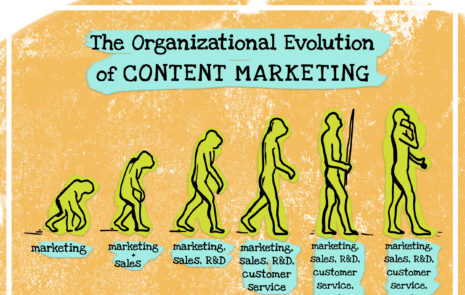
Are ‘You’ the Missing Person in Content Marketing?
Do you know of a missing persons’ bureau for content marketing? Maybe there should be one.
When I review websites for a competitive content audit, I often find someone important is missing: “you” the buyer or customer.
On many B2B websites, nowhere on the webpage does the voice of the brand ever speak to “you.” Instead “you” go missing.
By hesitating to use the word “you,” websites make it clear that they have no idea about exactly who they’re speaking to. Their choice in pronouns makes that abundantly clear.
It’s bad enough when a website fails to reflect a knowledge of buyer personas, which are fundamental to content marketing.
Personas spell out:
• who your buyers are
• what problems they’re trying to solve
• where they go to get information
• which obstacles they encounter along the way
• what the buying journey looks like, from start to finish.
You need exact buyer personas to get the best results from content marketing.
What I see is a problem that’s even more fundamental: websites that never mention the word “customer” and avoid the word “you.”
When “you” the buyer disappear from the content marketing story, lots of things start to go wrong:
• Without “you,” and with the American average attention span of 8 seconds, it’s hard to break through with your message. The word “you” compels attention.
• “You” conveys a warm and human voice.
• Without “you,” a huge emotional and psychic distance builds up between the seller and seller. It’s like talking to your neighbor, but always calling him by a distant name like “Mr. Smith.”
• Websites without the word “you” may completely lack the voice of the customer, in the form of customer quotes, case histories, testimonials or reviews. Nothing more powerfully convinces buyers than the voices of satisfied customers who are like them.
• Sometimes a company that can’t say “you” even loses its ability to say “we.” Instead it starts to refer to itself in the third person, which makes for clunky sentences like this one.
A company may retreat to a brand voice that sounds like it comes from a legal contract, using the company name, or “the corporation,” or “the company” throughout. Certain non-American companies speak a very formal form of English, which comes across as stilted and distant.
Stranger still, some companies exhibit schizophrenia about buyers and customers. One company actually refers to customers both as “you” and “they” on the same page as in this example (in which names are masked):
Use Our Experience to Your Advantage
XXX is a privately held fabricating distributor of YYY products. We are committed to working with our customers on designing the right products for their applications, producing products that meet their quality expectations, and servicing them throughout the process. We hope you will give us the opportunity to prove that our experience does make a difference.
After reading that, customers’ heads must be spinning. Who does this web page talk to: “them”? Or “customers”? Or “you”?
Here’s how to revise that paragraph to make it much more readable with “you”:
Use Our Experience to Your Advantage
XXX is a privately held fabricating distributor of YYY products. We are committed to working with you on designing the right products for your applications, producing products that meet your quality expectations, and servicing your needs throughout the process. We hope you will give us the opportunity to prove that our experience does make a difference.
Great content marketing helps you before it sells, because it’s really all about “you.” Make sure the word “you” appears often in your content.
At the heart of content marketing is an understanding of who “you” are, what problem “you’re” solving, what questions “you’re” asking, and how we can best help “you.”
Do you call your customers “you”? Why or why not?
Contact Us





